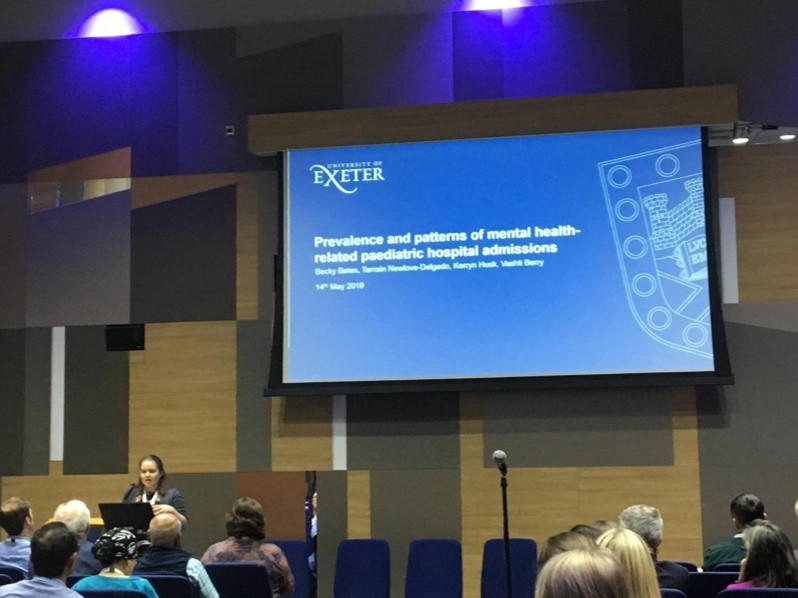Name of Student: Rebecca Bates
Degree Subject: Bachelor of Medicine, Bachelor of Surgery
Job Title: Research Assistant
Company Name: University of Exeter: Child Health Group – Institute for Health Research
Type of Internship: Access to Internships (A2I)
Description of Company: The Child Health and Wellbeing Research Network brings together researchers across the University of Exeter that conduct research in the area of children’s health and wellbeing. The network spans many of the University’s colleges and represents 13 different groups, all with related work in this important field of enquiry. It was formed to ensure that strong collaboration and inter-disciplinary thinking and skills are at the heart of the research conducted, for the benefit of children and young people.
What were your key duties and responsibilities during your internship?
My key duties and responsibilities during my internship were research data analysis, report writing, proofreading and preparing a conference presentation.
What outputs and outcomes did you deliver for your employer?
I presented our research at the Royal College of Paediatrics and Child Health’s annual conference. I also began work on national paper grown from the data analysis done on local data (I will be an author on the former, and lead author of the latter) – up to two PubMed papers can be taken into account during the Foundation Application process (the process you must undertake to be allocated a job after medical school), and being able to work on two so early will mean that I will have these reviewed and published by the time I am applying.
What was your biggest achievement on your internship?
Situation: Annual conference of the Royal College of Paediatrics and Child Health
Task: Presenting the research and data I had been working on
Actions: Preparing presentation, trial run with research team for feedback,
Result: Successful presentation in which I “didn’t seem like a medical student”, including two contacts made after which will hopefully lead to research links. This will also be relevant all the way through to my specialty applications as I have now presented at a national conference.
What did not go so well on your internship? How did you overcome any challenges?
I was very lucky in that no major challenges spring to mind, and any small queries and blips were well handled by my supportive supervisor – even down to worrying about the cost of travel to the conference resulting in this being covered by the team.
I had been worried my ADHD would preclude me from being successful in research but the structure the team provided meant that I was able to meet crucial deadlines such as being prepared for the conference and succeed in a way I could not have imagined at the start of my degree.
Skills Learnt
- Ability to Work Under Pressure
- Organisation
- Time and Work Load Management
- Strategic Planning
- Focus on Goals and Outcomes
Attributes Developed
- Personal awareness
- Cultural awareness
- Logical thinking
- Creative thinking
- Independence
Your message to other students considering a similar job role, organisation or sector?
“My internship has helped me truly accept that there can be a place for me in research, as someone with ADHD – a dream I thought I’d have to give up when I first realised that not everything comes as easy to me as it does to others. It also meant I could afford to take the time to get my presentation right, and play a significant role in the writing of the paper, based on my data analysis – meaning I could see it through from beginning to end. I am so grateful for the opportunity and hope I can find a way to afford to continue this journey.”

